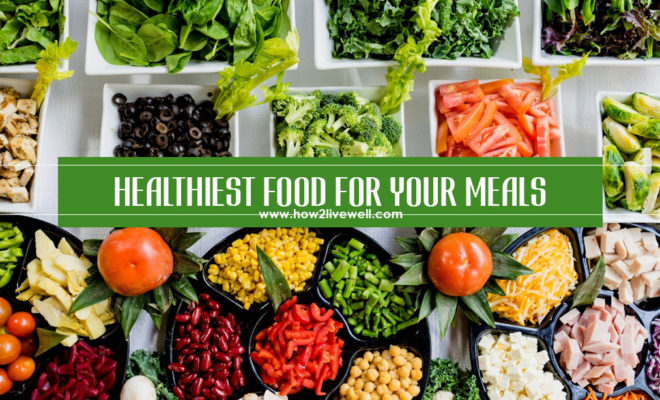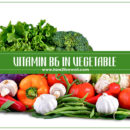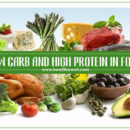Healthiest Foods On Your Meals

11. Kale:
A lot of times kale gets lumped together with spinach, but it deserves its own ranking on the list of world’s healthiest foods. While not as ubiquitous as spinach, kale is gaining ground because it is just as healthy, and even more so in some areas. You can use it the same way as spinach, as a healthy side dish. You can also add it to smoothies to make them green and to pack them with vitamins. Some people prefer the taste of kale to spinach, so an extra bonus there.
Benefits
The reason kale is becoming popular is because it helps you fill up without a lot of calories to speak of. It doesn’t have any fat, has plenty of fiber as well as iron and Vitamin K. Because of its antioxidant content you’ll get anti-inflammatory benefits which helps to reduce the symptoms of inflammation, while also helping to avoid the rise of certain diseases. It also helps to restore and maintain an alkaline state.
Vitamin Breakdown per 100g – Fresh and Raw, the kind found in the produce aisle:
- Vitamin A – Double the amount that’s required daily.
- Vitamin C – Twice as much as what you need each day.
- Protein – 4.3g – an impressive source of vegetable protein.
12. Raspberries:
Berries in general are a good source of antioxidants, but raspberries stand out for their impressive concentrations. This makes it a good idea to keep a pack of frozen organic raspberries that you can easily add to your smoothies for a fruity flavor and plenty of vitamins and minerals. Of course you can always get them fresh, but it can be somewhat hard to find decent fresh organic raspberries, and to eat them before they go bad.
Benefits
If you’re watching your weight, you can count on raspberries as a low fat, high fiber way to give you flavor without sacrificing your diet. But aside from any weight loss support they may provide, you’re going to get plenty of positive benefits from the antioxidants, which helps fight free radical damage, and keeps your body running smoothly in general. If you have arthritis there’s a particular reason to increase your consumption of raspberries, as they’ve shown to help with the inflammation causing your symptoms.
Vitamin Breakdown per 100g:
- Vitamin C – 44% of your RDV, makes it easy to get the rest from other foods.
- Calcium – Just 2% of what you need each day, but a non-dairy source to keep in mind.
- Iron – 4% – If you start eating more foods on this list, you’ll easily make up the rest.
13. Black Beans:
Black beans are the only bean to make it onto our list of the healthiest foods in the world. They’ve been used in Mexican and Spanish recipes for hundreds of years, and only now is it being discovered how healthy they really are. They are now a popular side dish option at most restaurants, so it’s easy enough to swap out fattening or unhealthy menu items with this super food.
Benefits
It’s commonly understood that fruits and vegetables contain antioxidants, but surprisingly enough black beans contain them as well. Beans in general are good to add to your diet, as they are a carbohydrate that is digested more slowly, so you feel fuller longer and helping to stabilize blood sugar levels. This is crucial for those that have been told they run the risk of getting diabetes, and it also helps weight loss efforts which brings a host of additional benefits. They also contain fiber which helps to regulate your digestive system.
Vitamin Breakdown per 100g:
- Calcium – 6% – A great non-dairy source of calcium.
- Protein – 8.2g – This represents a great source of non-animal protein.
- Fat – 0.3g – The low fat content of black beans is great for maintaining a healthy weight.
14. Cantaloupe:
Some think that cantaloupe is a negative calorie food, but whether it is or it isn’t it’s still a great addition to your regular diet. Picking a cantaloupe is easy enough, you simply give it a sniff and see if it smells like ripe cantaloupe or not, you’ll know. There’s also a relatively large window for when you use it, so you can buy it without worrying about it going bad soon. Just make sure that when you first cut it open you finish it off quickly.
Benefits
The main benefit to eating cantaloupe is all the vitamins it contains, most notably Vitamins A and C. These provide powerful antioxidants that your body uses right away to help itself survive in the world we live in and all the stresses that come with it. There are also benefits to your heart and lungs, and it helps you to feel more relaxed. You should also get natural energy from it, which makes it a smarter choice than drinking an energy drink or using a caffeinated pick-me-up.
Vitamin Breakdown per 100g:
- Vitamin C – 61% of what you need each day, mix it up with other fruits day to day.
- Vitamin A – 68% of your daily needs, not a bad start to the day.
- Calories – 34 – Calorie counters rejoice!
- Fat – 0.2g – Makes it easy to incorporate into several different diet programs.
15. Artichokes:
Artichokes don’t typically find their way onto many American plates, unless you count spinach artichoke dip as restaurant appetizer. But in order to keep it healthy you’ll have to eat them in their whole form. Try adding them to salads for some Mediterranean flair. They can typically be found in the deli section with things like potato salads and cole slaws. You can opt for canned or jarred varieties, but check the label to see if there is excessive sodium added to the marinade.
Benefits
Not to put too fine a point on it, your insides simply love artichokes. It helps with all sorts of digestive issues, and the fiber it contains keep things moving for you. They also have a healthy dose of Vitamin C, not enough to get you through the day, been when added to an already health-conscious diet you’ll find that it’s easier to meet all of your needs.
Vitamin Breakdown per 100g:
- Vitamin C – 20% of what’s needed each day for most adults.
- Protein – 3.3g – Another good source of plant-based protein.
- Fiber – 5.4g – A fifth of the fiber needed each day. Be sure to mix it up!






